Protein powder is an amazing supplement to add into your healthy lifestyle, but not all protein is created equal. I’ll give you the inside scoop on the 4 best protein powders and how to choose a good one. I’ve included recipes for using protein powder, too!
Right out of the gate, I think protein powder is great.
When you want to add a little extra nutrition to your day, using protein powder is a surefire way to get it done.
To quickly add nourishment to a smoothie or to ensure that you are meeting your daily protein requirements, you can add a good quality protein powder to just about anything.
I’ve even used it as a replacement for flour. I’ve got many recipes on the blog where I incorporate protein powder, including Lemon Blueberry High Protein Pancakes, which are a fabulous way to start the day. These pancakes are tops, my friends, with cottage cheese, protein powder, and egg whites – and they’re topped with a lemon yogurt sauce that’s just divine!
And if you want a grab n’ go protein boost, a smoothie enriched with protein powder is the perfect solution. With almond milk (protein!) and peanut butter (more protein!), you’ve got a power-packed breakfast or snack that you can take anywhere. Plus, if you want a fruit flavored smoothie I have you covered.
The main issue with protein powder is that not all options are created equal - in fact, many of them have way too many ingredients that are highly processed. While all protein powder is processed to some degree, there are definitely options out there with minimal processing that can be enjoyed on a mostly clean lifestyle.
In fact, Dustin and I created cleanish Brand Protein Powder that not only comes in 3 delicious flavors but is also protein that's good for your tastebuds and your body! I'll tell you a bit more below.
So let’s get to it, and I’ll tell you just how protein powder stacks up when it comes to nutritional value.
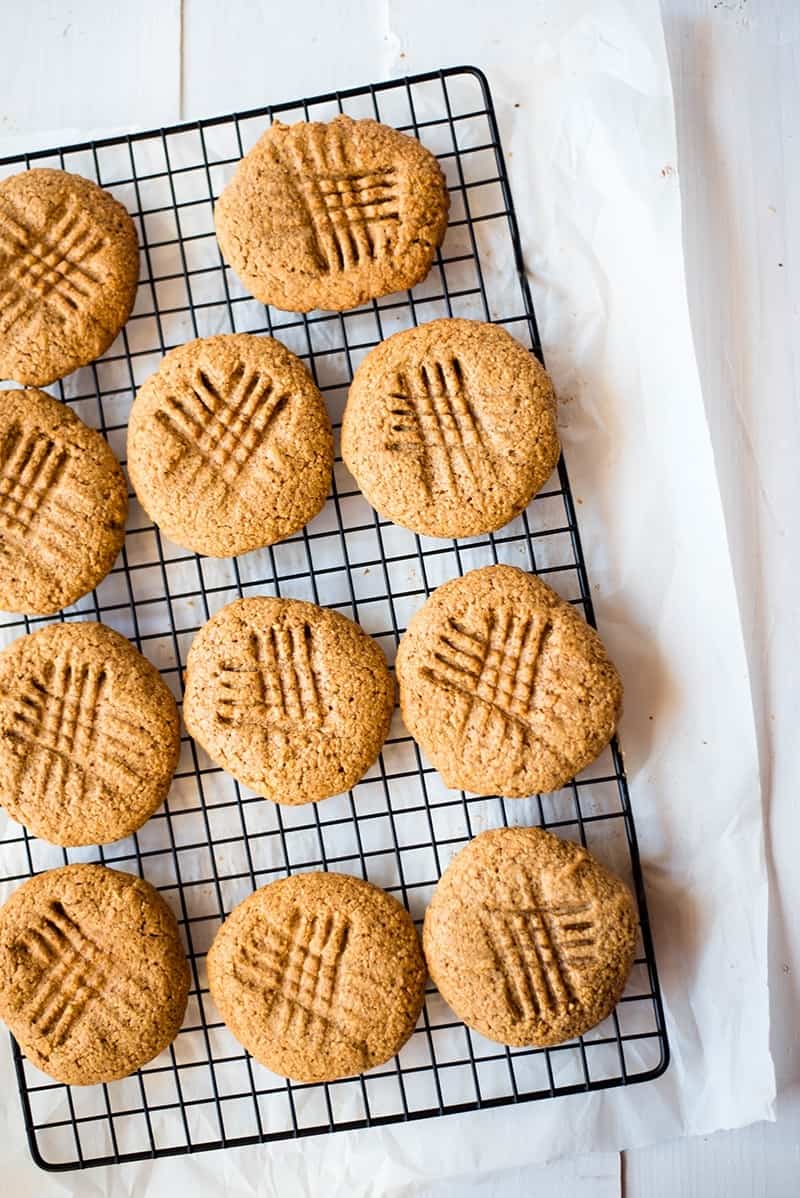
WHAT IS PROTEIN POWDER?
Protein powder is just what it sounds like: protein in powder form. Protein sources come from either plant, like pea protein or hemp protein, or animal sources, like egg protein or whey protein isolate. Some powders are fortified with extra vitamins and minerals.
There are three basic types:
- Protein concentrate is made by extracting protein from whole foods.
- Protein isolate involves an additional filtering process that removes fat and carbs, concentrating the protein more.
- Protein hydrolysate is made breaking the bonds between amino acids and is absorbed quickly by the body.
WHY USE PROTEIN POWDER?
First, let’s talk a little about macros. Macros are what make up the calories you consume each day. Protein is one of the macros; carbs and fat are the other two.
Protein should make up 10-35% of your daily food intake, and if you want to build muscle, you’ll want to up your intake.
You see, protein is considered a building block because it is a substance that your body continuously needs. Protein builds and repairs your muscle tissue, and if you lack protein, your organs, hair, and skin will show it.
If you use protein powder to supplement foods like nuts, lean meat, and eggs, you'll be all set. Essential body processes like enzyme and hormone function, muscle maintenance, and muscle repair can take place. This is particularly important if you don’t get enough protein in your normal diet, which is the case with many people.
If you want to learn more about your macros, how to count them for weight loss, and how protein importantly fits into the picture, read my post. I’ve made it simple for you!

HOW DOES MORE PROTEIN BENEFIT ME?
Ensuring your body has adequate protein benefits you in many ways. From exercise recovery to repairing muscle, protein is pretty important. Let’s dig deeper:
- Protein aids in muscle recovery and repair after exercise. That is why it is advised that you have a protein snack (my faves are here) after a workout. Eggs, almonds, and protein shakes are great choices.
- If you maintain an adequate protein supply, your muscle growth will be as it should. Low on protein? You’ll lose muscle mass.
- Protein is great for filling you up. If you make sure to reach your protein intake needs, you’ll have less desire to snack, which usually means eating foods full of sugar.
- Protein boosts your metabolism.
- Your bone mass is protected when you eat adequate amounts of protein, fruits and veggies, foods containing calcium, and more. It’s really a package deal reminding you to eat healthy all around!
I also have an entire video on why we need to eat more protein you can watch here.
IS PROTEIN POWDER HEALTHY?
Protein powder can be very healthy or not that great for you; it really depends on the processing and chemicals being added to the product. That's why it's so important to read the label.
You’ve still got to eat healthy, fibrous foods (like chickpeas and lentils, for example), along with fruits and veggies like apples, broccoli, and spinach. Just consuming protein powder does not a healthy diet make.
It’s important to choose the right kind of protein, which we’ll go over in a minute. Watch for extra ingredients like sugar, artificial sweeteners and artificial flavoring, which can take the healthiness right out of the good you are trying to do. Check the label for added sugar to ensure that it’s a reasonable amount. Some powders will have as much sugar as 23 grams of protein per scoop!
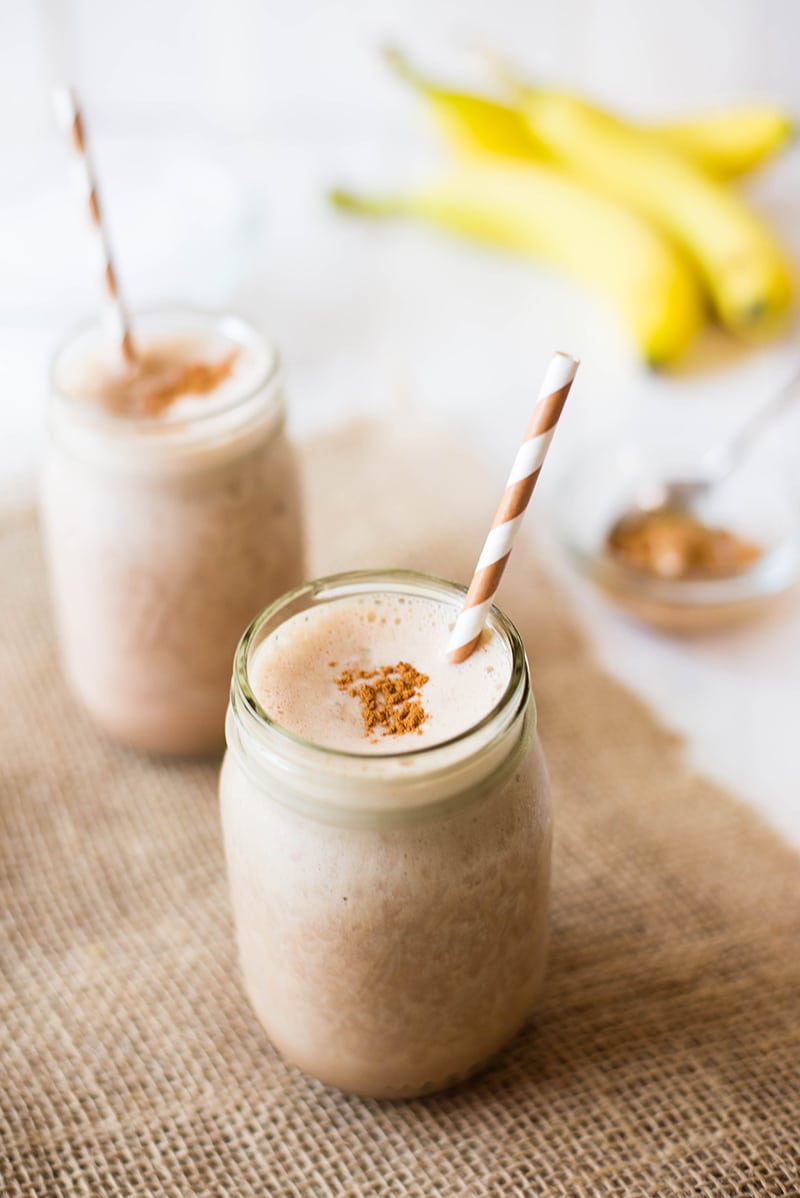
CAN I USE PROTEIN POWDER EVERY DAY?
You can use protein powder every day, as long as you are using it sensibly. Too much protein can be harmful, so make sure that you stay within the recommended amount, which is 0.8 grams per kilogram of weight, regardless of age.
If you overdo the protein intake, you can have kidney problems and may increase your chance of heart disease. You also don’t want to miss out on other essential nutrients from other foods.
That all being said, I use protein powder in my shakes every single day as part of my balanced diet. I love a peanut butter and banana shake or a green tea smoothie!
DO YOU REALLY NEED PROTEIN POWDER?
You don’t need protein powder, no. But if your protein intake is low (or even most of the time adequate), there is no harm in giving your body the occasional protein boost. Especially if you are trying to lose weight, for instance. Protein helps to satiate you and keeps you from snacking on high-calorie foods that may be devoid of nutrients.
And since I get asked a lot about eating healthier, I know that many of you are low in essential nutrients like fiber, protein, and fats. (Learn more about necessary fats here.)
If you are looking for better health through an eating regimen such as intermittent fasting like I am, your protein intake is crucial. You can make mistakes when fasting, and not eating properly in your eating window is one of them. Boosting your protein intake can work wonders for building muscle and satiety when you combine exercise and fasting. So, it just makes sense to keep the protein you eat at adequate levels.
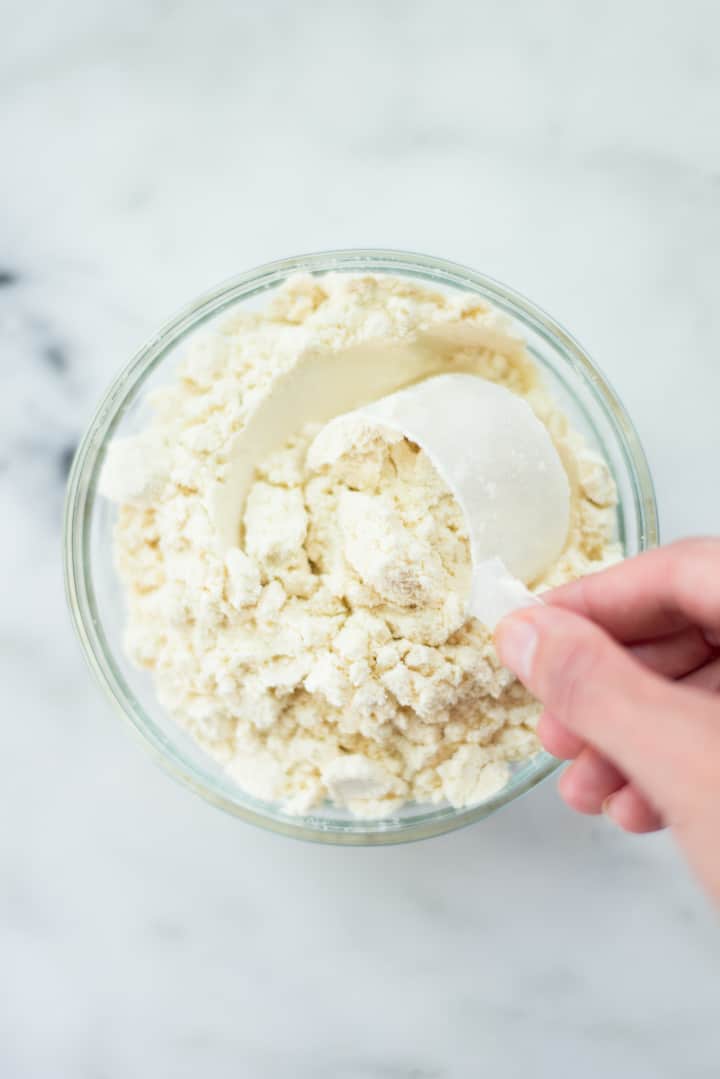
CAN I COOK WITH PROTEIN POWDER?
That’s a big yes! It’s best when baked, though. Make sure that you follow the recipe and the quantities given. Protein powder can be used as a sub for flour, but you’ve got to follow directions. I’ve got several recipes that use protein powder:
- Peanut Butter Protein Cookies
- No Bake Chocolate Peanut Butter Protein Bars
- High Protein Lemon Blueberry Pancakes
Protein powder is also amazing in shakes, smoothies, and even a pumpkin spice latté! But don’t forget to try and up your protein through whole foods, either. Try dishes like my High Protein Chicken Bowl With Cashew Lime Crema.
And remember, if you are vegan or vegetarian, getting enough protein can be a challenge if you aren’t sure how to go about it. I’ve covered all that in the Ultimate Guide to the Best Vegan Protein Substitutes.
If you have unflavored protein powder, you can add it to mashed potatoes, add it to a dip, or even put it in your mix for burgers. Just try adding small amounts at first - experiment to ensure the consistency is the way you like.
MY 4 FAVE PROTEIN POWDERS
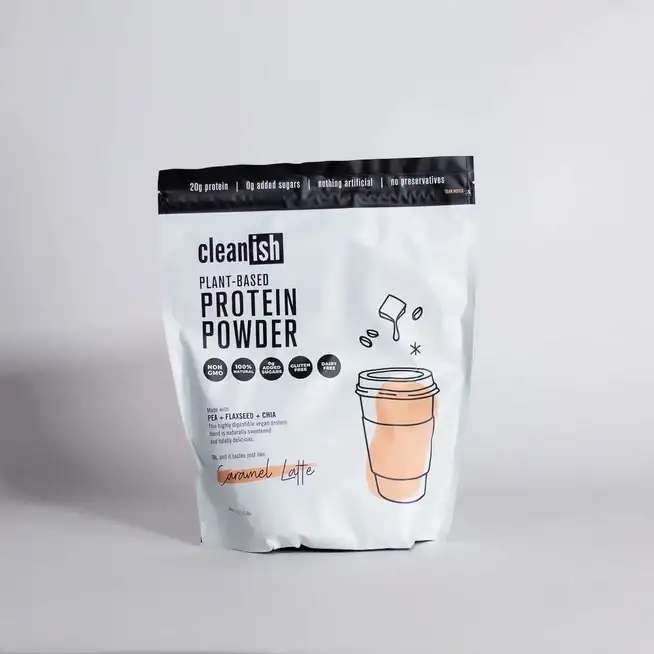
1. PEA PROTEIN
I'm a BIG fan of pea protein! Pea protein is good in that it is suitable for all diet types. Meat eaters, vegans, vegetarians, and those sensitive or allergic to eggs or dairy can use pea protein as it's a plant-based protein powder.
Pea protein is a gluten-free protein supplement made from the split yellow pea. It’s a highly digestible and affordable protein powder. My cleanish brand Plant-Based Protein Powder is a blend of pea protein, chia protein and flaxseed. I chose to make a plant-based protein because the dairy in whey protein can cause inflammation for some people, whereas the plant-based protein doesn't. Plus, it has fiber and additional nutrients. As well, studies show pea protein may be effective in lowering blood pressure.
2. EGG PROTEIN
Slower to digest, egg protein powders are usually made from egg whites as opposed to whole eggs. Egg whites provide excellent protein. Leucine is a branched-chain amino acid found in this protein powder, second in quantity only to whey.
Because eggs are an animal source of protein, they provide all of the amino acids not made by the body. Essential amino acids must be obtained from the diet. Since egg protein has all 9 of these amino acids, it’s a great choice.
3. WHEY PROTEIN
Milk is the source of whey protein. Whey digests quickly and is high in the amino acids I mentioned, especially the muscle-promoting leucine. Whey protein has been proven to maintain muscle mass and to build and strengthen your muscles, too. Two common types of whey protein are whey protein concentrate and whey protein isolate, with whey isolate being higher in protein and lower in fat and carbohydrates.
A lot of athletes rely on grass-fed whey protein as supplementation to their dietary protein intake. In particular, lean muscle mass benefits when combined with resistance training. BTW, I’ve put together an effective Shelter-In-Place Pull Workout with resistance bands. Take a look!
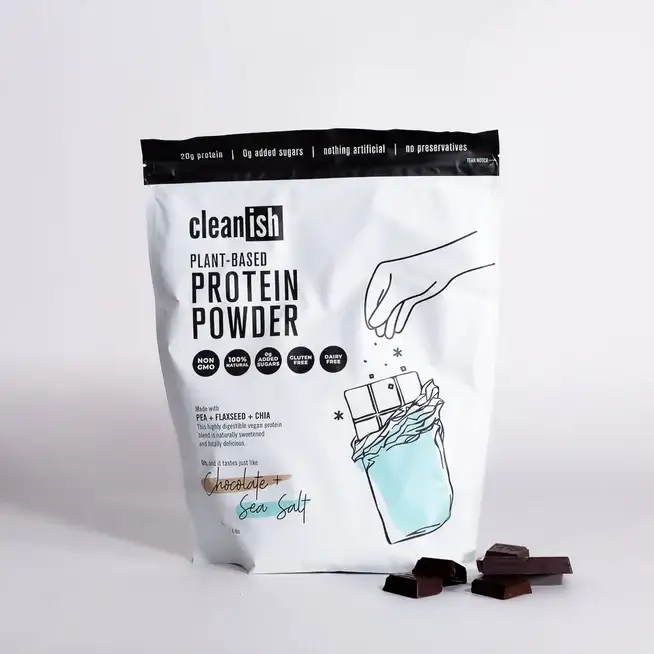
4. VEGAN PROTEIN BLEND
Vegan protein powder can be chalky and have an earthy aftertaste, so it's sometimes tricky to find one that tastes delicious and is still low in added ingredients. I find the blend of organic pea protein with chia protein and milled flaxseed in our cleanish brand Plant-Based Protein Powder to be the best option, and the taste is great, too.
As I mentioned, plant protein is digested more easily, doesn't cause inflammation, and is a complete protein because it combines two types of proteins to achieve a full offering of essential amino acids. Along with this great amino acid profile, vegan protein will have adequate grams of fiber per serving, which is a bonus.
CHOOSING THE BEST PROTEIN POWDER
All protein powders can add additional protein to your diet, but there are some considerations you may want to make when choosing which one to buy.
- If you have dietary restrictions or intolerances, work around them. Choose a vegan powder if you want an animal-free or lactose-free product, for example. A combo of protein sources like flax, chia, pumpkin seed, quinoa and more make a terrific vegan blend.
- If you want a protein with all 9 essential amino acids, look to whey or egg, for instance. Pay attention to protein blends for vegan options.
- Some protein powders will have prebiotics and probiotics, both great for the gut.
- Taste and texture matter, so start with a small container of protein powder to try it. Once you’ve found the one you like, buy in bulk or in easy to store tubs to save money.
- If you're worried about taste, look for high-quality protein powders in strawberry or chocolate flavors.
- Check the product's shelf life, especially if you don’t think you’ll use it quickly.
- Look for options with minimal ingredients, including added sugars. The best clean sweetener options are coconut sugar, monkfruit extract, and stevia leaf extract. Always read the ingredient list, looking for ingredients of high quality.
- Read the label of the protein powder you are looking at to ensure there are no unnecessary fillers. Look for a protein powder certified free of banned substances and other contaminants.
- If you have doubts as to whether you should use protein powders, speak with your doctor. People with kidney disease cannot tolerate a high amount of protein all at once and should be aware of that.
- People with gastrointestinal problems will want to stick to a lactose-free, artificial flavors-free powder to avoid stomach upset.
- If you are unsure about protein powders, check with a nutritionist as well as your physician to get their recommendations. They may suggest casein protein powder or soy protein powder as optional types of protein powder. It depends on your circumstances and health status.
This post contains affiliate links for products I use regularly and highly recommend.

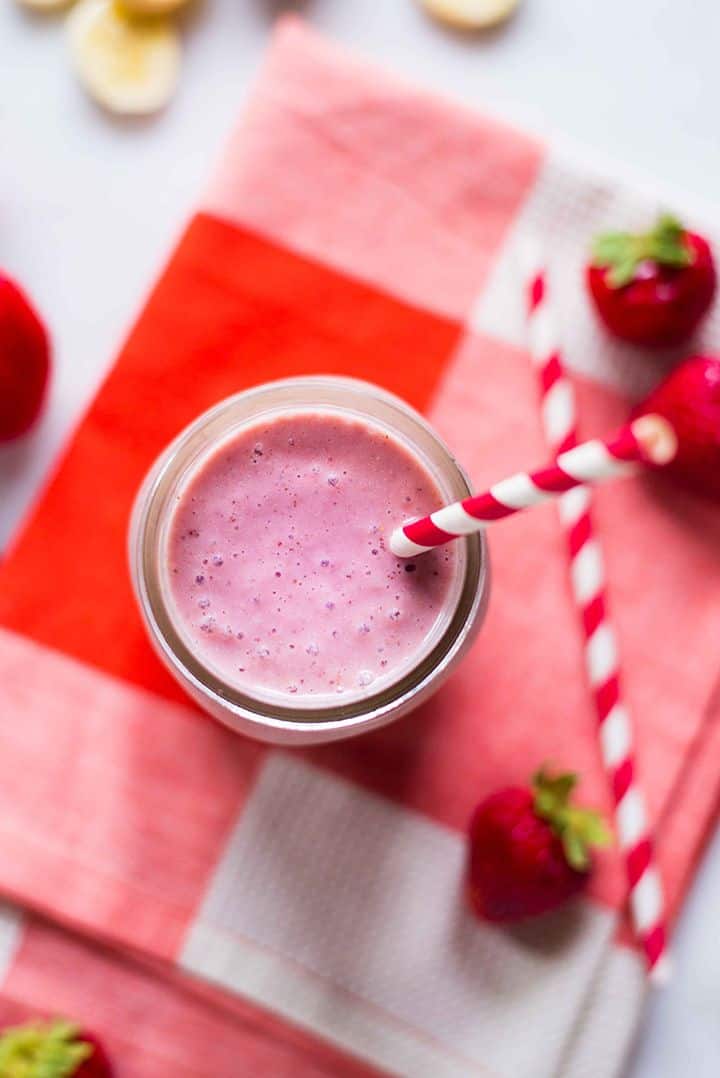
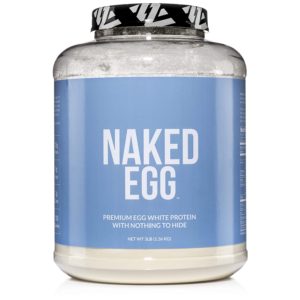
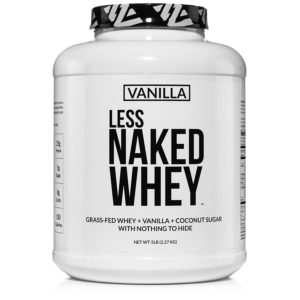
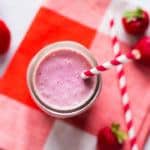
Comments
No Comments